Related Research Articles

Rajani Palme Dutt, generally known as R. Palme Dutt, was a leading journalist and theoretician in the Communist Party of Great Britain. His classic book "India Today" heralded Marxist approach in Indian historiography.
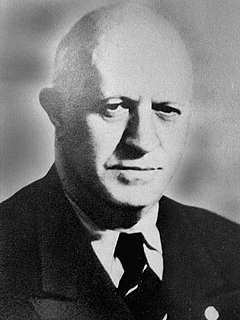
Vasil Petrov Kolarov was a Bulgarian communist political leader and leading functionary in the Communist International (Comintern).
The Red International of Labor Unions, commonly known as the Profintern, was an international body established by the Communist International with the aim of coordinating Communist activities within trade unions. Formally established in 1921, the Profintern was intended to act as a counterweight to the influence of the so-called "Amsterdam International", the social democratic International Federation of Trade Unions, an organization branded as class collaborationist and an impediment to revolution by the Comintern. After entering a period of decline in the middle 1930s, the organization was finally terminated in 1937 with the advent of the Popular Front.
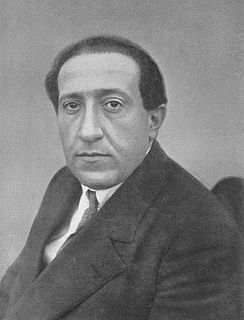
John Pepper, also known as József Pogány and Joseph Pogany, was a Hungarian Communist politician. He later served as a functionary in the Communist International (Comintern) in Moscow, before being cashiered in 1929. Later as an official in the Soviet government, Pepper ran afoul of the secret police and was executed during the Great Terror of 1937–38.
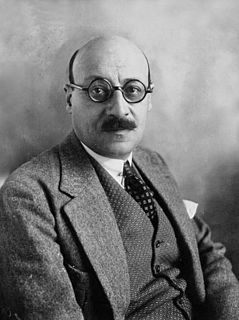
Ludovic-Oscar Frossard, also known as L.-O. Frossard or Oscar Frossard, was a French socialist and communist politician. He was a founding member in 1905 and Secretary-General of the French Socialist Party (SFIO) from 1918 to 1920, as well as a founding member and Secretary-General of the French Communist Party (PCF) from 1920 to 1922.

Robert Berkeley "Bob" Minor, alternatively known as "Fighting Bob," was a political cartoonist, a radical journalist, and, beginning in 1920, a leading member of the American Communist Party.
Paul Frölich was a German journalist and left-wing political activist and author, a founding member of the Communist Party of Germany and founder of the party's paper, Die Rote Fahne. A Communist Party deputy in the Reichstag on two occasions, Frölich was expelled from the Party in 1928, after which he joined the organized German Communist Opposition movement. Frölich is best remembered as a biographer of Rosa Luxemburg.
Mikhail Veniaminovich Kobetsky was a Soviet politician and diplomat. From 1919 the head of the publishing house of the magazine Kommunisticheskii Internatsional in Petrograd. From 1922 he was a member of ECCI, the director of the Petrograd Department (Bureau) of the Executive Committee of the Communist International (ECCI). In 1921 he entered the Secretariat of ECCI. In 1924–27 he was the Polpred of the Soviet Union to Estonia (1924), Denmark (1924–33), Greece (1934–37) and Albania (1935–37). From January 1933 he was the referent of ECCI for the Scandinavian countries.

Kazimierz Cichowski was a Polish-Soviet communist activist and politician, Bolshevik revolutionary and nobleman. Along with Vincas Mickevičius-Kapsukas, he played an important role in establishing the Soviet regime in Lithuania and the Lithuanian–Belorussian Soviet Socialist Republic.

Ludwig Erwin Alfred "Dutch" Katterfeld was an American socialist politician, a founding member of the Communist Labor Party of America, a Comintern functionary, and a magazine editor.

Louis C. Fraina was a founding member of the American Communist Party in 1919. After running afoul of the Communist International in 1921 over the alleged misappropriation of funds, Fraina left the organized radical movement, emerging in 1926 as a left wing public intellectual by the name of Lewis Corey. During the McCarthy era, deportation proceedings were initiated against Fraina-Corey. After a protracted legal battle, Corey died of a cerebral hemorrhage before the action against him was formally abandoned.
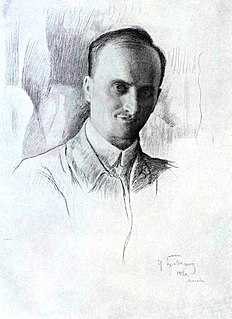
Endre Rudnyánszky was a Hungarian lawyer, military officer, and communist. He held leadership posts in international and Hungarian communist organizations until his disappearance in 1921.

The 2nd World Congress of the Communist International was a gathering of approximately 220 voting and non-voting representatives of Communist and revolutionary socialist political parties from around the world, held in Petrograd and Moscow from July 19 to August 7, 1920. The 2nd Congress is best remembered for formulating and implementing the 21 Conditions for membership in the Communist International.
Avetis Sultanovich Sultan-Zade (1889–1938) was a Persian-born ethnic Armenian communist revolutionary and economist, best remembered as one of the founders of the Communist Party of Iran. Sultan-Zade was a delegate to the Second World Congress of the Communist International in 1920 and was for a time one of the leading figures of the Marxist revolutionary movement in the so-called "East." Following his demotion from the leadership of the Iranian Communist Party and the Comintern in 1923, Sultan-Zada lived in the Soviet Union where he worked as a government functionary in the banking industry.
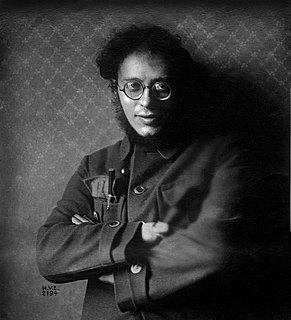
Karl Berngardovich Radek was a Russian revolutionary and a Marxist active in the Polish and German social democratic movements before World War I and a Communist International leader in the Soviet Union after the Russian Revolution.

Left communism, or the communist left, is a position held by the left wing of communism, which criticises the political ideas and practices espoused by Marxist–Leninists and social democrats. Left communists assert positions which they regard as more authentically Marxist than the views of Marxism–Leninism espoused by the Communist International after its Bolshevization by Joseph Stalin and during its second congress.
The 4th World Congress of the Communist International was an assembly of delegates to the Communist International held in Petrograd and Moscow, Soviet Russia, between November 5 and December 5, 1922. A total of 343 voting delegates from 58 countries were in attendance. The 4th World Congress is best remembered for having amplified the tactic of the United Front into a fundamental part of international Communist policy. The gathering also elected a new set of leaders to the Comintern's governing body, the Executive Committee of the Communist International (ECCI).

The Executive Committee of the Communist International, commonly known by its acronym, ECCI (Russian acronym ИККИ), was the governing authority of the Comintern between the World Congresses of that body. The ECCI was established by the Founding Congress of the Comintern in 1919 and was dissolved with the rest of the Comintern in May 1943.
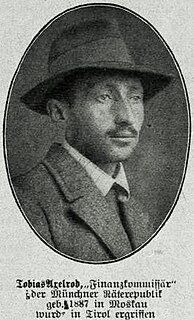
Tobias Akselrod was a Russian revolutionary and 1919 member of the Bavarian Soviet Republic.
The Sixth Congress of the Communist International was held in Moscow from July 17 to September 1, 1928. The Congress was attended by 515 delegates from 65 organizations from 57 countries. Adopting the theory of the "Third Period", Congress proclaimed social democracy to be "social fascism."
References
- ↑ Kókai, Károly (2017). "The Communist International and the Contribution of Georg Lukács in the 1920s". Social Scientist. 45 (11/12): 63–72. ISSN 0970-0293. JSTOR 26405282.
- ↑ Voerman, Gerrit. "Proletarian Competition. The Amsterdam Bureau and its German Counterpart, 1919–1920". kommunismusgeschichte.de. Retrieved 27 July 2022.